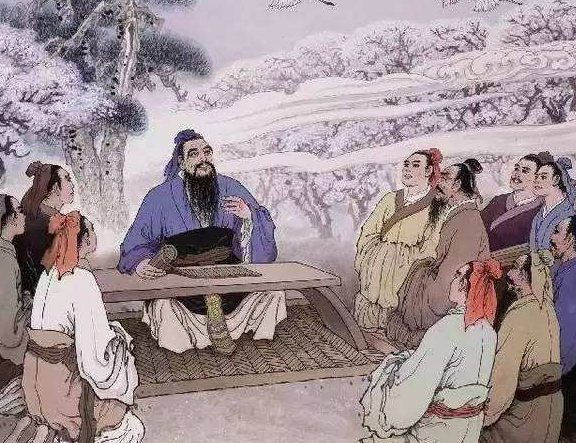Looked at from a distance, he appears stern, when approached, he is mild,
望之俨然,即之也温,
when he is heard to speak, his language is firm and decided."
听其言也厉。”
Tsze-hsia said, "The superior man, having obtained their confidence, may then impose labors on his people.
子夏曰:“君子信而后劳其民。
If he have not gained their confidence, they will think that he is oppressing them.
未信,则以为厉己也。
Having obtained the confidence of his prince, one may then remonstrate with him.
信而后谏。
If he have not gained his confidence, the prince will think that he is vilifying him."
未信,则以为谤己也。”
Tsze-hsia said, "When a person does not transgress the boundary line in the great virtues,
子夏曰:“大德不逾闲,

he may pass and repass it in the small virtues."
小德出入可也。”
Tsze-yu said, "The disciples and followers of Tsze-hsia, in sprinkling and sweeping the ground,
子游曰:“子夏之门人小子,当洒扫
in answering and replying, in advancing and receding, are sufficiently accomplished.
应对进退则可矣。
But these are only the branches of learning, and they are left ignorant of what is essential.
抑末也,本之则无。
How can they be acknowledged as sufficiently taught?" Tsze-hsia heard of the remark and said,
如之何?”子夏闻之,曰:
"Alas! Yen Yu is wrong. According to the way of the superior man in teaching,
“噫,言游过矣!
what departments are there which he considers of prime importance, and delivers?
君子之道,孰先传焉?













